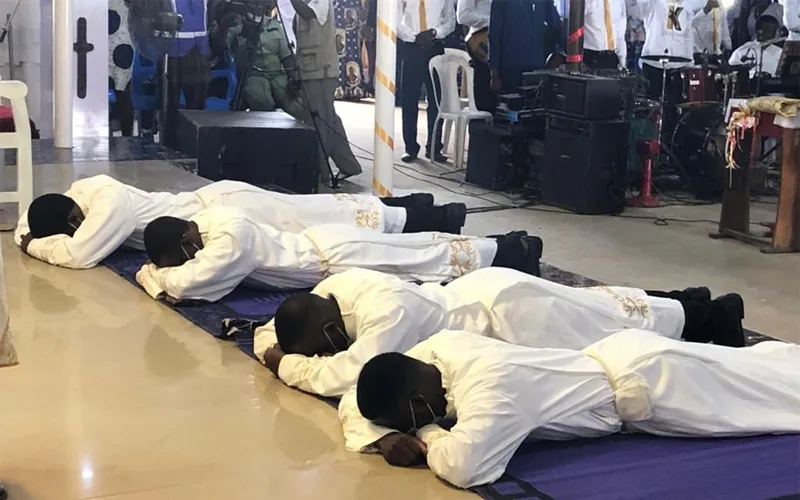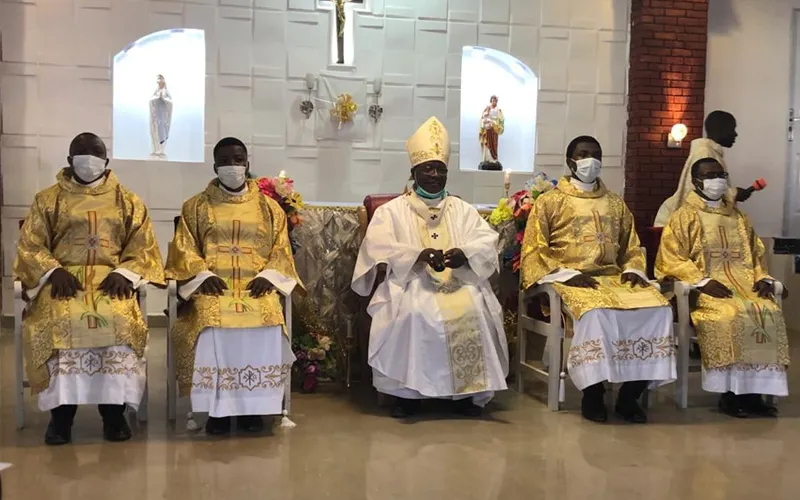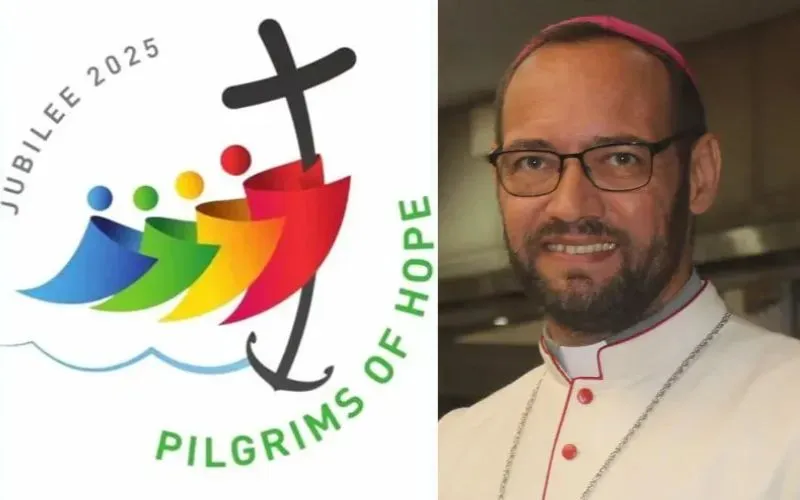The 62-year-old Archbishop who has been at the helm of Abuja Archdiocese since November 2019 regrets that Religious leaders are also falling into the trap of materialism, preaching for selfish gains and a desire to enrich themselves.
“One finds, regrettably, some religious leaders who have metamorphosed from being servants, prayer specialists and preachers to business or commercial strategists,” he said during the ordination event that took place on Divine Mercy Sunday, April 11.
In Nigeria, the Archbishop said, the syndrome of “what is in it for me” is what has caused the country’s greatest drawback.
Leaders, rather than ask what they can do for people entrusted to their care, demand what the poor can do for them or how they can unjustly take from what is for the poor to foster their happiness, while the poor sink into deeper poverty and misery, the Archbishop said.
Such selfishness, Archbishop Kaigama noted, has manifested itself in the distribution of COVID-19 palliatives, IDP relief materials, food ration for prisoners and school children, among other government services.
(Story continues below)
He also expressed his condemnation for leaders who are enriching themselves on the country’s execution of constituency projects and contracts to improve infrastructure rather than having the public’s interest at heart.
According to the Archbishop who started his episcopal ministry in Nigeria’s Diocese of Jalingo in April 1995, the calmness and selflessness of the early leaders who he says promoted unity and loving coexistence is in very short supply today.

Meanwhile, in his Message on the occasion of the Divine Mercy Sunday, Archbishop Kaigama called upon the people of God under his pastoral care to contemplate on the steadfast love of the Lord, which never ceases and His mercies, which “are new every morning.”
He said that God’s mercy is a calling for His people to perform loving deeds and show mercy to others and “not to be like that ungrateful servant in Matthew 18 who, having enjoyed an incredible debt cancellation from his master, could be so unforgiving to his fellow servant of a small amount.”
Making reference to the Sunday April 11 second reading from St. John’s first letter, which focused on the need to obey God’s commandments to love and to become channels of God’s mercy and peace, Archbishop Kaigama said the passage is an invitation for the people of God “to penetrate the walls we have built around us, which hinder us from genuine love and service.”
“The violent attacks on innocent people, the criminal and sinful act of kidnapping being turned into a lucrative business, the excessive bloodshed all around us, are becoming too embarrassingly painful,” the Nigerian Archbishop said April 11.
Agnes Aineah is a Kenyan journalist with a background in digital and newspaper reporting. She holds a Master of Arts in Digital Journalism from the Aga Khan University, Graduate School of Media and Communications and a Bachelor's Degree in Linguistics, Media and Communications from Kenya's Moi University. Agnes currently serves as a journalist for ACI Africa.











